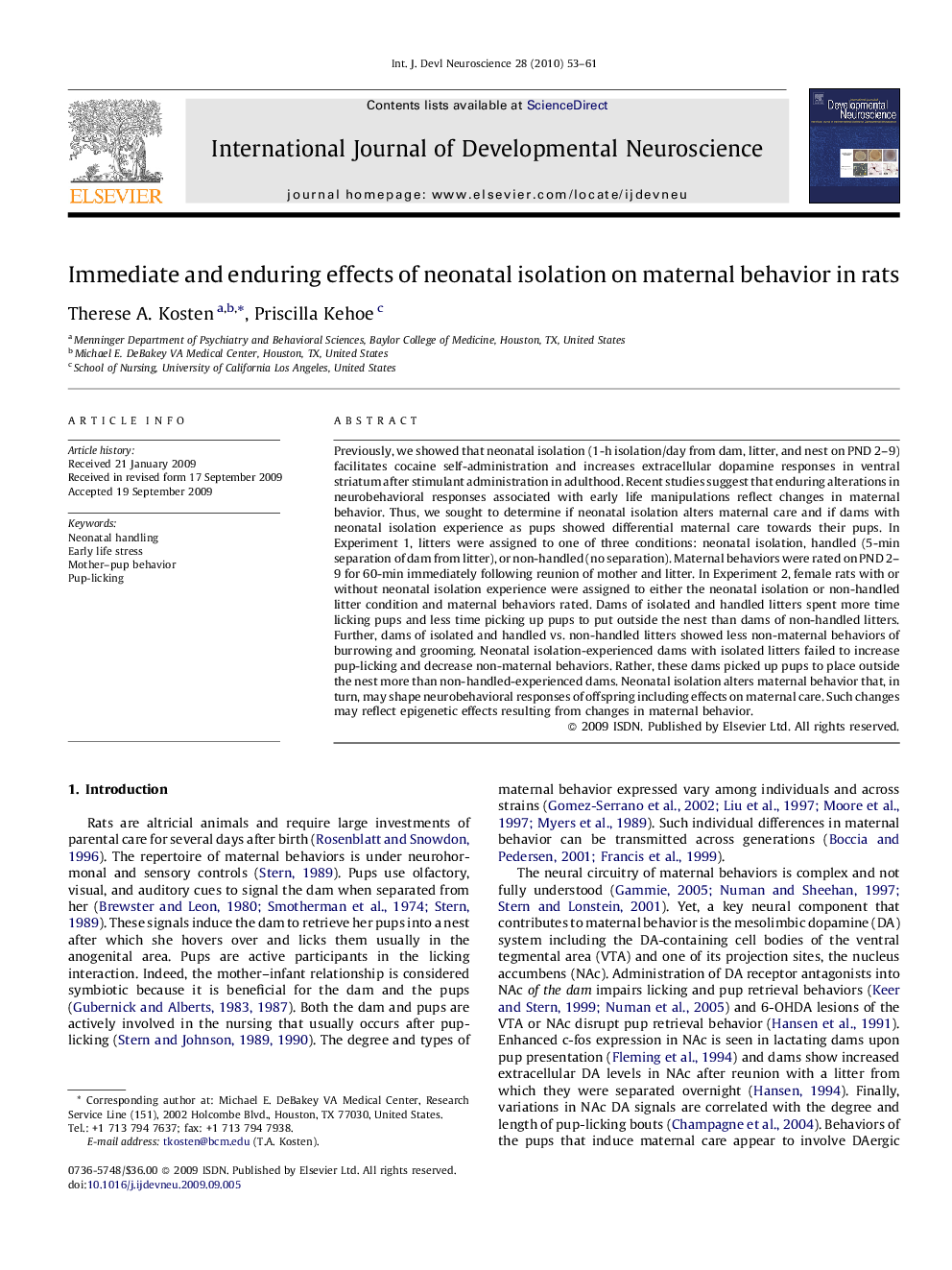| Article ID | Journal | Published Year | Pages | File Type |
|---|---|---|---|---|
| 2786886 | International Journal of Developmental Neuroscience | 2010 | 9 Pages |
Previously, we showed that neonatal isolation (1-h isolation/day from dam, litter, and nest on PND 2–9) facilitates cocaine self-administration and increases extracellular dopamine responses in ventral striatum after stimulant administration in adulthood. Recent studies suggest that enduring alterations in neurobehavioral responses associated with early life manipulations reflect changes in maternal behavior. Thus, we sought to determine if neonatal isolation alters maternal care and if dams with neonatal isolation experience as pups showed differential maternal care towards their pups. In Experiment 1, litters were assigned to one of three conditions: neonatal isolation, handled (5-min separation of dam from litter), or non-handled (no separation). Maternal behaviors were rated on PND 2–9 for 60-min immediately following reunion of mother and litter. In Experiment 2, female rats with or without neonatal isolation experience were assigned to either the neonatal isolation or non-handled litter condition and maternal behaviors rated. Dams of isolated and handled litters spent more time licking pups and less time picking up pups to put outside the nest than dams of non-handled litters. Further, dams of isolated and handled vs. non-handled litters showed less non-maternal behaviors of burrowing and grooming. Neonatal isolation-experienced dams with isolated litters failed to increase pup-licking and decrease non-maternal behaviors. Rather, these dams picked up pups to place outside the nest more than non-handled-experienced dams. Neonatal isolation alters maternal behavior that, in turn, may shape neurobehavioral responses of offspring including effects on maternal care. Such changes may reflect epigenetic effects resulting from changes in maternal behavior.
